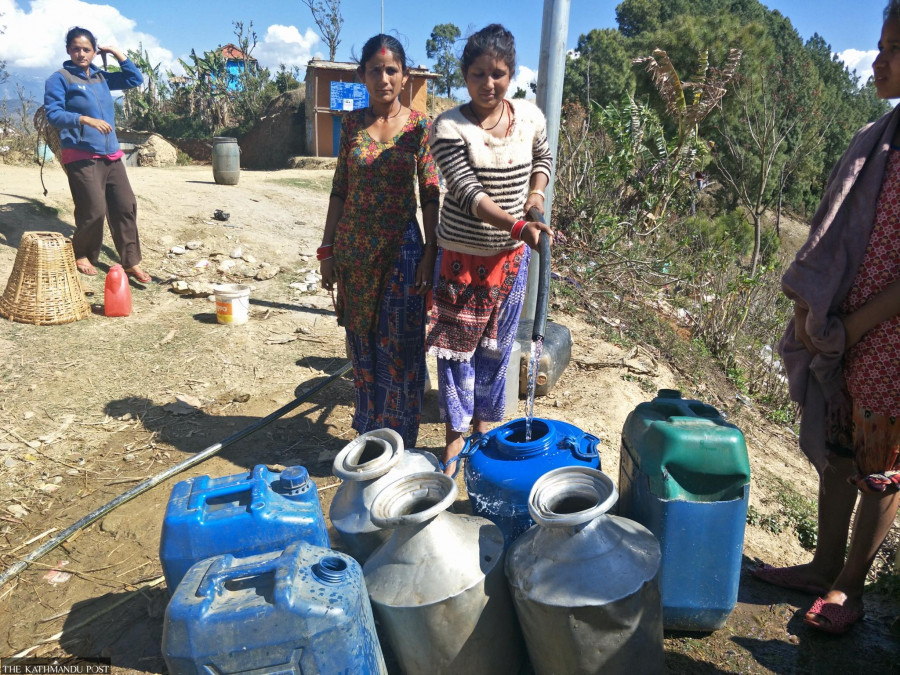Editorial
The chronic water problem
The provision of necessities for the people should be the government’s top priority.
The onset of the monsoon brings with it numerous water-borne diseases. And lack of safe and reliable drinking water sources exacerbates the problems even further. Every year, hundreds of lives are lost due to the consumption of contaminated water, causing diarrhoea, cholera, dysentery, jaundice and typhoid. Ironically, Nepal, a country with abundant fresh-water resources, cannot provide safe drinking water to its populace. It’s a particularly arduous affair for people in remote regions of Nepal who have no means to avail of a clean source other than to trek for hours.
The provision of necessities for the people should be the government’s top priority. Still, the priorities seem somewhat skewed when the incumbent authorities promise to usher in overall growth and development without addressing the many necessities people actually yearn for—the government talks of a host of programmes and measures, each with its plan to uplift the down-trodden to establish a just and equal society. But instead, people are faced with a constant dose of disappointment.
The authorities made provisions for schools without textbooks, health centres but without doctors, haphazard construction of roads but without concern for the effect on the people or the environment; and of course, water taps without any water. Hence, it came as no surprise—except perhaps for the political bigwigs—when an independent candidate Harkaraj Sampang Rai pulled a major upset by ousting candidates from the major political parties and being elected mayor of Dharan Sub-Metropolitan City. Rai's primary campaign plank was resolving the chronic water problem that has plagued Dharan for over a decade.
And while the political parties have been dealt a reality check on their promises, the issue was clear—people could no longer live on the promises made by previous incumbents. While the problem is providing safe drinking water in remote regions, it isn’t the absence of the adjective safe. In most cases, it is the total lack of water. The authorities spent billions of rupees on the Melamchi Water Project only to halt the water supply, once again citing threats of debris and flood. Some may consider suspending the water supply as a prudent measure. Still, the promise of alleviating the people’s problems has been going on for decades and, if not resolved timely, will only add to their frustration.
The issue of water is not affecting one particular city or region. It is a problem faced by people across the length and breadth of the country, and yet we see casual complacency on the part of the authorities in dealing with it. The government must channel its resources first to resolve the chronic problems plaguing the people making life that much more unbearable whilst simultaneously focusing on the issues of improving the problems at the national level. The government’s aim should be to take care of the niggling problems afflicting the people, and until that is resolved, attempting to resolve the issue of the economy, productivity and unemployment at the national level will only lead to futile efforts.




 20.12°C Kathmandu
20.12°C Kathmandu













